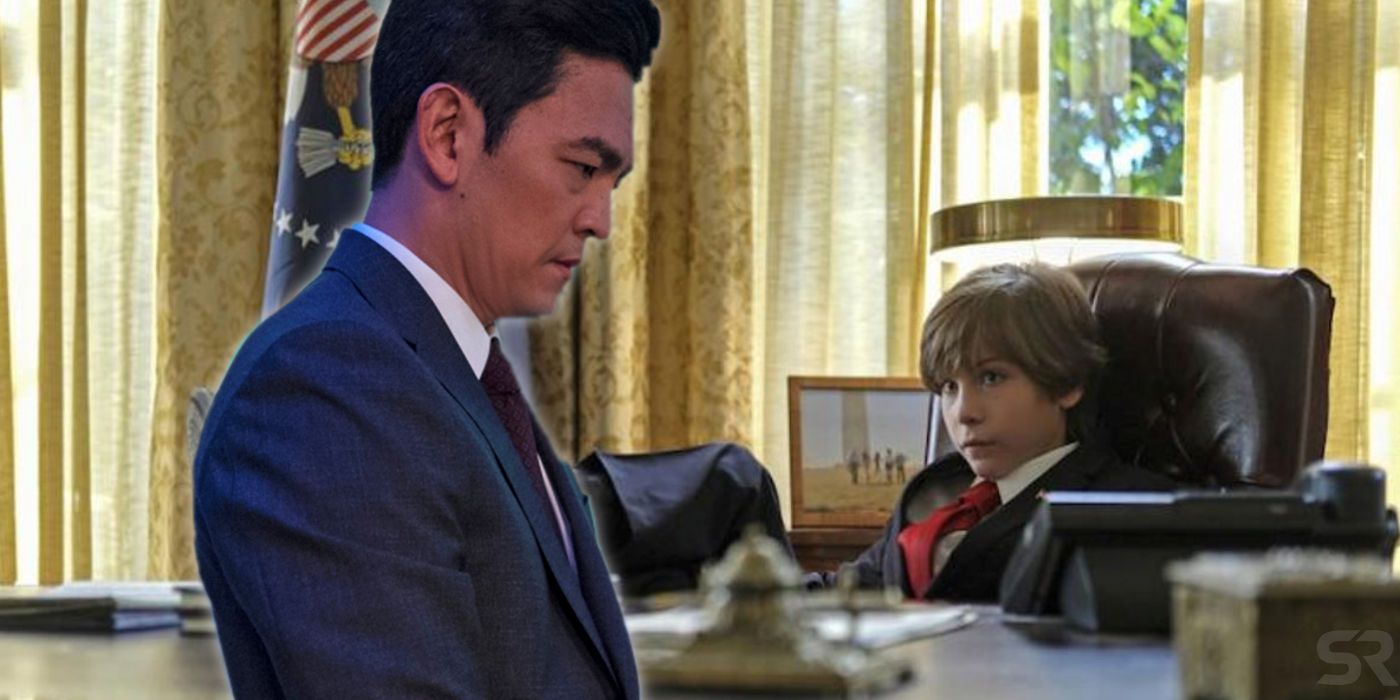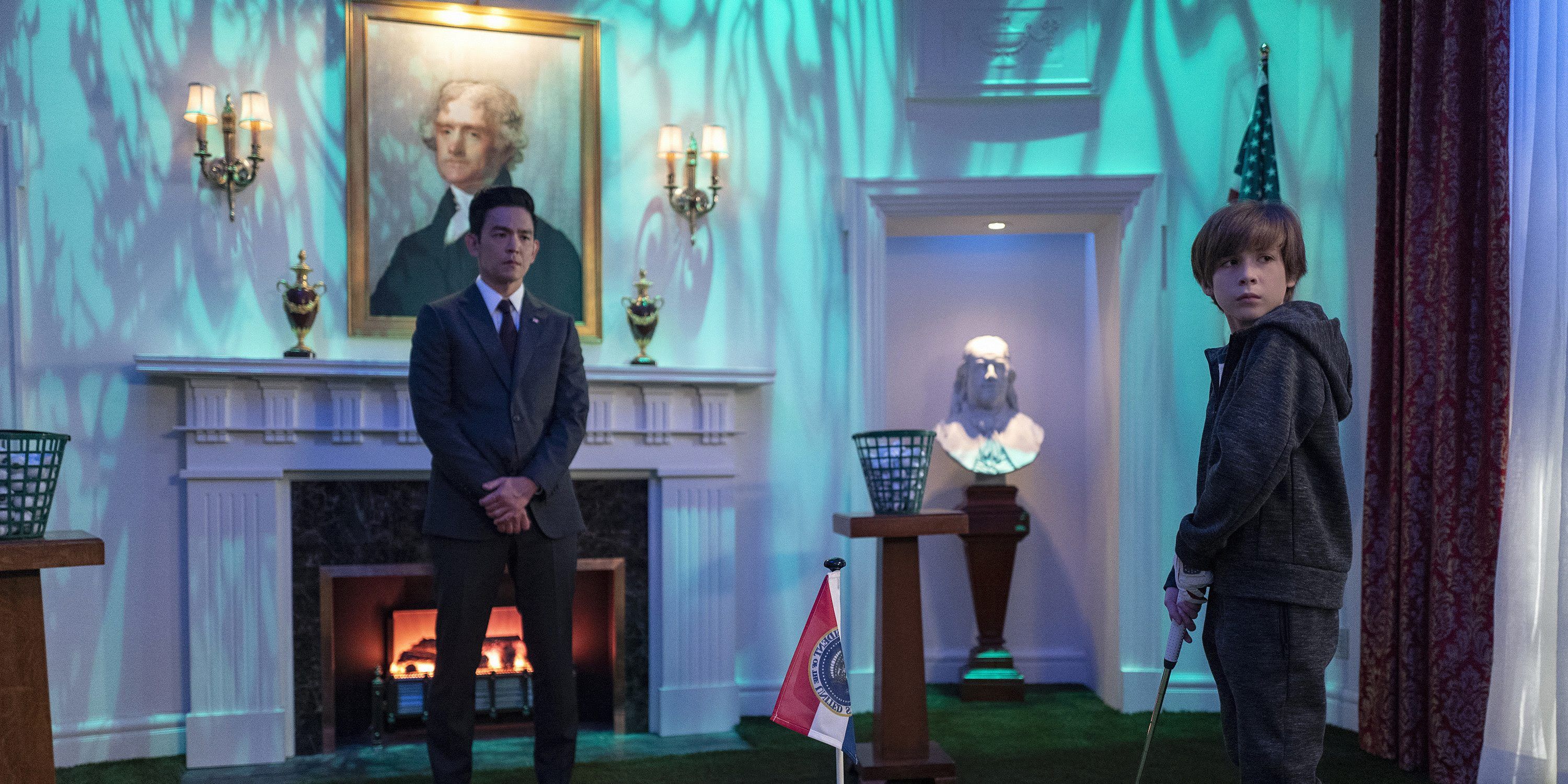The Twilight Zone season 1, episode 5, “The Wunderkind” examines American politics and how many voters prefer style over substance. A YouTuber takes the country by storm and runs for U.S. president, only to fall on his face before rising up again, and all thanks to a clever campaign strategy. “The Wunderkind” teases a supernatural element throughout the episode, and the payoff comes in the final moments for a cutting commentary on a fragile and blind American society.
John Cho portrays the down-and-out Raff Hanks, a campaign manager who fails a U.S. presidential nominee. After draining his sorrows in booze, Hanks sees potential in 11-year-old YouTube sensation Oliver Foley (Jacob Tremblay). With the blessing of the boy’s family, Hanks concocts a marketing strategy that’s geared more towards voters' pop culture interests than actual policies. "The Wunderkind" episode seemingly takes place from Hanks' point of view, as he remembers the past while undergoing some type of medical procedure. Young Oliver is ultimately elected U.S. president, but has the experience made him too powerful and calculating?
Despite a major career setback, Hanks believes that he’s too smart to fail, and turning an 11-year-old boy into the American president would cement his legacy. But Hanks doesn’t understand the Brave New World, and he certainly underestimates the boy who would figuratively become king. Ultimately, Hanks discovers that the joke is on him, as President Foley reveals the truth behind a dying dog vlog, one that saved the boy's campaign after a dreadful policy debate. Hanks believes himself to be “The Wunderkind,” when in fact he’s just a pawn in the game who’s ultimately accused of treason.
“The Wunderkind” offers a sharp commentary on self-serving decision-making. Since Hanks knows how to boost one’s ego, he feels that he’s always one step ahead, especially when dealing with a socially naive kid. What Hanks doesn’t understand, however, is that his behavior makes him a prime target for manipulation. As a whole, "The Wunderkind" mirrors the current political climate in America, and how the public immediately reacts to political speeches on social media, and perhaps without understanding that they’re merely being provoked to boost partisan allegiances. “The Wunderkind” addresses the concept that all press is good press, along with the concept that when one party constantly pokes at the other, it boosts the inherent camaraderie of those who show unconditional love to an elected political head.
On a deeper level, “The Wunderkind” explores how personal insecurities can lead to the unthinkable. In this particular episode of The Twilight Zone, the public wants to identify with a young kid who just wants to play video games and have fun. They don’t want to think about the larger society issues… at least for now. In the end, Hanks is accused of treason and shot, and then finds himself being operated on by none other than a different kid. As a result, The Twilight Zone audience must look in the mirror and contemplate how words can not only be used as weapons and/or defense mechanisms, but also the idea that one’s words can easily be used against them as tools of blatant manipulation. Everybody knows that politicians lie. But why does one continue to support an egocentric politician who doesn't appear to take the job seriously?


